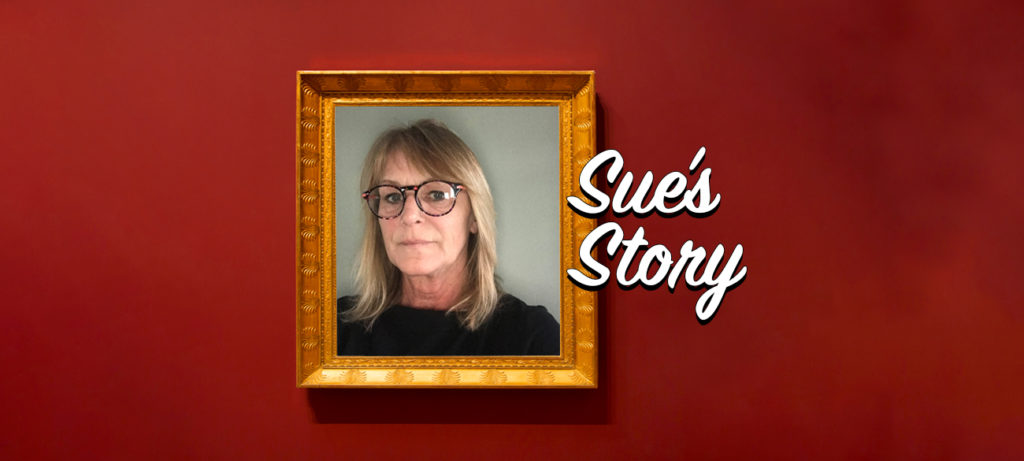“This year has been brutal.” Sue Alexander doesn’t mince her words. The co-owner of Eagle Travel, an independent travel agency in Bedford, Sue comes across as someone carefully clambering across rocky slopes, stoically pushing on, trying not to look down. Covid hasn’t been kind to anyone. But the travel sector was disproportionately hit in the first lockdown period and again over the summer. Hospitality and the arts might be sharing the headlines at the moment but travel hasn’t gone anywhere.
The UK’s travel sector began to dry up in February in response to the spread of Covid in 11 Italian municipalities. Many British children who had recently returned from skiing trips to Italy were told to self-isolate at home, and some schools temporarily closed to enable deep-cleaning. By March 9, the UK government was warning against all but essential travel to Italy. Then, a week later, more than 700 passengers and crew aboard the luxury cruise ship Diamond Princess tested positive for the virus.
“From the middle of March”, Sue says, “it was pretty obvious travel was going to be a problem. The Diamond Princess didn’t do anything for people’s confidence to carry on travelling.” On March 23, Britain went into lockdown, “we went into the office, picked up the files, thinking it might be something that might last for a couple of months or so, came home and we’re still sitting here now.”
“The first months were awful”
Operating since 1994, Eagle is a small, luxury travel agency, organising holidays such as road-trips across the US, extended visits to Australia and New Zealand and cruises to dozens of destinations. Normally, there are five members of the sales team, two back office staff and a marketing person, along with Sue and her business partner. “When we first had to go into lockdown, we furloughed the staff”, Sue says. “The first couple of months were absolutely awful”, as she and two colleagues fought to manage a flood of cancellations and delays, prioritising people according to departure dates. She says, “as a business we have lost a lot of money, an awful lot of money.”
Travel agencies work on commissions. When refunds are paid out, earnings from those bookings – that would normally go to wages, rents, and supporting families – have to be paid back to clients. “Not only did we have to shut our doors and not actually earn any future bookings, we had to refund some of the bookings that we had made in January and February as well”, Sue says. “Money-wise it’s been pretty tough.”
Sue regards the furlough scheme as an invaluable source of support, similarly the loans she’s taken out, “we never had to ask for a loan in the past, but in this case I think we’re quite grateful.” As things quietened down, everyone remained on furlough other than Sue and her business partner, between them dealing with the final few bookings for travel in the latter part of this year. “It’s quietened down now as we don’t have that many bookings now because our booking months would have been March, April, May and June and that hasn’t happened this year.”
The furlough scheme was due to finish in November and plans were made for the staff to come back to Eagle on reduced hours and salaries. “They were willing to accept the reduced hours purely because they want to get back to work”, Sue says. Then the scheme was updated just days before they were due to return and they were furloughed again.
Brighter future for cruise ships
Inevitably many people are not willing to travel at the moment, “there are some die-hard travellers that are trying to get away and who we have managed to get away”, Sue says with a smile, “but I think public confidence has been knocked severely.” This was exacerbated by swift changes in government advice, suddenly requiring many people to go into isolation on their return. The vaccines look set to improve things. Sue believes that as confidence returns there will be a “massive upturn” in people booking. There are signs of this already.
In 2019 Eagle enjoyed a record year with cruising, one of their specialities. Insurance companies are now rewriting cruise policies around Covid, and cruise lines are responding by building flexibility into tickets. Passengers must submit to mandatory testing before embarkation, but in the event of testing positive they can expect to be allowed to sail at a later date. This approach has had a positive effect on the industry. Currently, UK cruise ships are not sailing but Sue says people are booking cruise holidays for next year, 2022 and even 2023.
The rest of the travel industry however has been slow to pick up. Aviation was in trouble long before the dawning of Covid, many national carriers were already struggling financially. “They seem to get most of the press”, Sue says, citing comments by Transport Secretary Grant Shapps who, in an interview for ABTA – The Travel Association, sought to provide some reassurance by saying the government had helped the aviation industry. Sue believes “I don’t think he actually realised that we’re not the aviation industry, aviation is just a very small part of the travel business, and that there has to be travel agents to get people on those planes that they helped out in the first place.”
“Travel will bounce back”
Sue feels that eventually, in the months after Covid, the need for professional travel agents will be greater than before. Expert advice will be even more important than in the past. “People realise now that to actually have a person that they can speak to, and call for assistance if there is an issue, I think that proves invaluable. Certainly from our experience this year, people who booked online but haven’t been able to call the company they booked online with have come to us to ask for help and obviously we’ve helped where we can, but there are only certain things we are able to assist them with.” As difficult as things are, Sue understands the need to restrict the spread of Covid across international borders. This is widely accepted too by the travelling public. But the knock-on effect is that, while Eagle’s clients have been sympathetic to the situation, Sue says the media “have forgotten about travel”.
It’s possible that Australia and New Zealand may not reopen for travel until the end of 2021, holidays in America remain unlikely over the coming months too. But cruise ships may restart in the spring. Sue is generally optimistic about the future, “the general consensus is that travel will bounce back massively.” So how does she feel about the fate of the business? “It depends on when you ask me the question”, she says, “some days I feel fairly despondent, that we’ll never get back to the levels that we were, and other days I feel quite buoyed that we’ve just got to hold on, we’ve just got to hibernate as best we can until we can bounce back. But it’s a very, very difficult one to judge.”






